Mai-Hanh Nguyen Oct. 9, 2017, 4:13 PM
Chatbots, computer programs that typically use text-based live chat as an interface to carry out tasks for customers on behalf of the business, are emerging as an inexpensive way to introduce artificial intelligence (AI) in banking.
New digitally savvy companies have found success attracting consumers with user-friendly offerings, while legacy banks are finding it difficult to invest in and adopt innovative products. To remain competitive, these large banks will have to adapt their traditional services by incorporating more robotics in banking that will attract more tech-savvy customers.
Chatbots in Banking
Chatbots in banking are a digital solution that is relatively inexpensive to develop and maintain. For starters, chatbots require less coding than standalone banking apps. And the current growth in popularity of messaging platforms saves banks the cost of developing their own channels, as well as saving on data storage thanks to chatbots' cloud-based systems.
Companies such as Cleo, Stripe, and Wealthfront are giving traditional banks a run for their money. However, for these players it is more difficult to meet the demand of key bank products (such as loans) due to less restricted regulations that force their customers to spend heavily on compliance and maintain large capital cushions.
DBS uses Kasisto’s Kai, the underlying technology of MyKai, to allow customers to conduct transactions such as transfers and bill paying. Furthermore, they can ask about their personal finances using messaging applications such as Facebook Messenger and eventually WhatsApp and WeChat, all of which are the top messaging applications used across the world.
In 2016, Swedbank launched on its website and mobile application Nuance’s NINA, who helps answer customer inquiries more quickly by sourcing information relevant to their query using intuitive analysis.
Chatbots in Finance
The finance industry is built on processing information, which makes it an ideal industry for automation and reduction of salary expenditure, according to a new report from PwC. However, two-thirds of US financial services respondents said that they’re limited by operations, regulations, budgets, or resources to make the investment in such innovative development.
Fintech companies such as Plum, Digit, and Cleo use chatbots that drive microsaving by putting small amounts into savings each day for their users. These companies’ chatbot is their core product, unlike legacy banks that use it to supplement a core product.
These companies are improving various financial services that provide their customers more than just automated savings. Chatbots can provide wealth management for the masses, underwrite loans and insurance, provide data analyses and advanced analytics, and detect and notify of fraudulent behavior, all through an automated virtual assistant.
Bank of America uses ERICA to give customers key and real-time updates on their finances using a channel of their preference. Her predictive analytics and cognitive messaging helps customers make payments, pay down debts, and check their balances.
Chatbots Set to GrowExclusive Data from BI Intelligence
Although chatbots have been around for a long time, recently the underlying AI technology has made waves in the market.
BI Intelligence, Business Insider's premium research service, has found that the technological advancements in AI has made leaps and bounds in recent years in financial services.
The growing popularity of messaging apps have made them reliable hosts for chatbots, and the increasing public acceptance of chatbots have created more trustworthy relationships with users, particularly for millennials, whom banks are trying to target.

